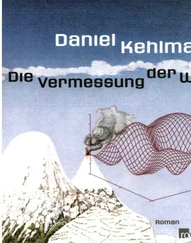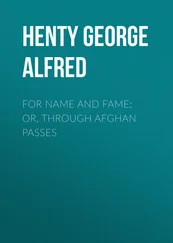“Do you have a phone?”
“Yes,” I said, surprised. “Do you want to call someone?”
“No, it’s ringing.”
I reached into my pocket and pulled it out. The music I’d been hearing for awhile did indeed get louder. Hannah’s name was on the screen. I hit the disconnect button. Luzia watched me, amused. I didn’t understand why. I felt hot, and hoped I hadn’t turned red.
“I’ve only had mine for a short time,” she said. “I find it eerie. It makes everything unreal.”
It took me a moment to understand that she was talking about her cell phone. I nodded and assured her she was absolutely right. I had no idea what she meant.
Only a few guests remained, glasses in hand, scattered around the room, and I wondered why she’d stayed this long, why in particular with me. I said we could go and find a drink elsewhere, the old well-worn formula, and she, as if she didn’t understand or as if I didn’t know she understood perfectly well, or as if she didn’t know I knew, said yes, let’s.
So we ended up in a rather uninviting bar, and Luzia talked, and I nodded, and now and again I said something too. The room seemed to be spinning slowly, I was incredibly conscious of her perfume, and when she touched my upper arm as if by accident, an electrical charge ran through my body, and when her hand brushed across my waist she didn’t pull it back, and when at some point I came so close to her that I could see the tiny veins in the depth of her irises, I realized that I wasn’t just living a wish or a dream anymore, or a fantasy born of my solitude, it was really happening.
“Do you live around here?” she asked.
At that moment my phone rang.
“Again?”
“A friend. He has a lot of problems. Calls at the oddest times: mornings, lunchtime, at night.” I wasn’t yet a practiced liar back then, and yet as I was saying it, I could see him in front of me in all his misery. Sad, drunk, unshaven, crushed by life, and desperate for my advice.
“Poor him,” she said smiling. “Poor you.”
“Yes,” I said, in answer to her previous question. “Right around here.”
It was actually quite far, the taxi took almost half an hour, and we sat side by side, embarrassed, like two strangers without a thing to say to each other. The driver smoked, oriental-sounding music was cooing out of the radio, and outside ragged-looking people were standing around under shop signs blinking meaninglessly into the night. It was cold, and the whole situation suddenly struck me as ridiculous. I remembered my bed wasn’t made and I wondered how I was going to hide the plush elephant that had been in every bedroom I’d had since I was ten years old. The problem still seemed almost insoluble when we were in the stairwell. But then she didn’t even notice it, and the unmade bed didn’t matter either, nor the many dirty teacups lined up on the table, for we fell on each other before we were even through the door.
I was out of practice and when she pressed my back against the wall and her lips against my mouth, I couldn’t breathe. Her hands were clamped around my neck, her knee pushed between my legs, beside me a book fell onto the floor, then she pulled me—I heard my shirt collar tear—into the middle of the room and shoved me so hard against the table that two of the empty cups were knocked off it. I threw my arms around her and held her tight against my body, partly out of desire and partly to prevent her from doing any more damage; for a few seconds that seem to me even now as being quite outside time, I saw her eyes a mere fraction of an inch from my own, and the smell of her surrounded me and our breath was a single breath. Perhaps this is the moment to pause and describe her.
She was half a head taller than me and had the broad shoulders of someone who grew up far from a city—quite different from my dark, fragile Hannah. Everything about her was massive; only her face was fine-featured, her brows delicately arched, her lips not too plump. Her breasts were larger and rounder than those of the distant woman I didn’t want to think about right now. Was she beautiful? I couldn’t have said, I still can’t say, she was just herself, and for that reason I desired her so much that I would have given a year of my life, her life, anybody’s life unhesitatingly for the privilege of touching her, and the moment when I actually did put my lips—she inhaled sharply—on her collarbone, my existence split into two halves: a before and an after, for all time.
An hour later we weren’t even tired. Perhaps it was even longer, perhaps much less: time seemed to race forward and wind back, it folded itself into bows and tangles like unspooling film and afterward I no longer knew whether this was a result of my disordered memory or reality itself had succumbed to confusion. In one of my recollections I’m stretched out while her body lifts itself above me, silvery white in the dull light from the window, her hands on my shoulders, her head thrown back; in another she’s lying under me, her hands digging into my back, her eyes turned away from me as my hand slides down her body to the place that makes her moan in despair or in pain. Or I in her arms or she in mine and the two of us half on the bed and half on the floor, so entwined that we could be one body or Siamese twins, her hand in my mouth and my arms around her hips—and at this precise moment Hannah’s face flashes in front of me then fades again. Then we’re on our feet and the back of my head bangs against the wall and I’m supporting her entire weight and the space around us disintegrates and then reassembles itself. Just at the moment when I succumb to gentle exhaustion, it all starts again and we clutch each other as if we were swimming in the Sargasso Sea because we don’t want it to end. But finally we become separate, and there’s her and there’s me and I would love to have listened as she started telling me her life story but I’m already drifting into a dreamless sleep.
In the early morning it began again. Was I the one who shook her awake, or did she drag me from my sleep? I don’t know, all I see is a clear, singularly pure sky in the window. Her hair on the white pillow had changed color in the dawn light and now was giving off red glints, but—she gave a sigh—we both sank back into sleep and the last dreams of the night that was ending.
When I woke up, she was fully dressed, murmured a goodbye, and was out the door; she had to get to work. I was late too. Without stopping for breakfast I ran to the car and while I was stuck as always in the 8 a.m. traffic, I called Hannah.
“Yesterday? Boring. The usual bunch of bureaucrats.”
Even as I said it, I wondered about two things. First that people, even those closest to us who know us best, don’t notice when we lie. The cliché holds the opposite, that you always betray yourself somehow and begin to stutter and sweat when you utter a falsehood, that you sound odd, that your voice changes. But friends, it’s not true. And the fact that it’s not true surprises nobody more than the liar. Besides, even if it were true, even if your voice tightened, even if we did sweat and blush and twitch, none of it would give us away because nobody notices. People are credulous, they don’t anticipate being deceived. Who truly listens to other people, who concentrates on the chatter of his nearest and dearest? Everyone’s mind is somewhere else.
“You poor thing. Those bores! I don’t know how you stand it.”
I detected no irony in her voice. And that was the other thing that surprised me: everyone makes fun of officials, bureaucrats, pen pushers, and paper tigers. But that’s us! Every one of us who’s an employee feels we’re an artist, an anarchist, a free spirit, a secret lunatic who recognizes neither norms nor constraints. Every one of us was once promised the kingdom of heaven and none of us wants to acknowledge that we’re part of these people we never wanted anything to do with, have been for years, that nothing about us is exceptional, and that it’s precisely the sense that we’re different that makes us so banal.
Читать дальше












